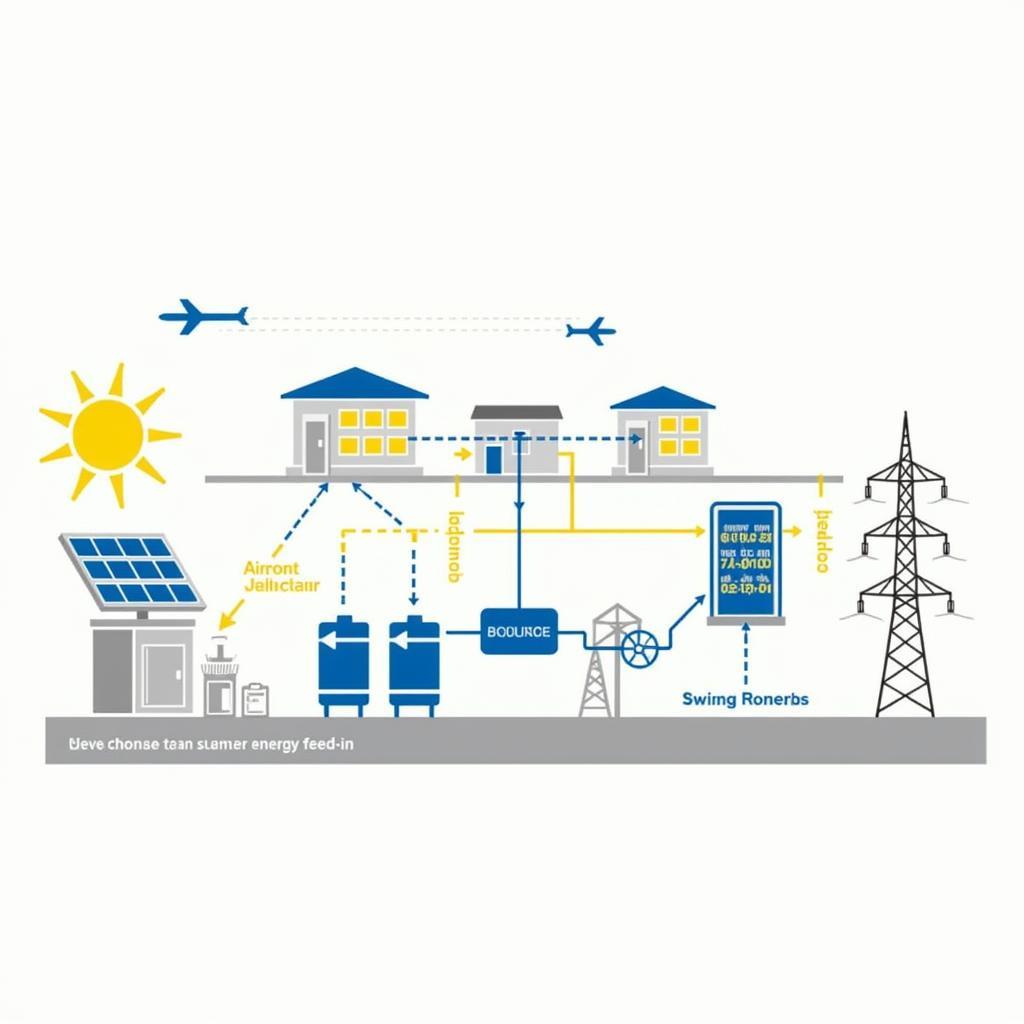Cochin International Airport, also known as Kochi Airport, achieved a remarkable feat in 2015: it became the world’s first airport fully powered by solar energy. This pioneering move solidified Kochi Airport’s position as a leader in sustainable aviation, setting a precedent for airports worldwide.
The Genesis of Kochi Airport’s Solar Initiative
The decision to embrace solar power wasn’t merely a publicity stunt. Facing rising electricity costs and a growing awareness of the environmental impact of aviation, Kochi Airport’s management sought a long-term, sustainable solution. The abundant sunshine in Kerala, India, provided the perfect opportunity to harness the power of the sun. Initial studies demonstrated the feasibility of a solar-powered airport, and the project began to take shape. The airport partnered with experts in renewable energy to design and implement a comprehensive solar power system. This involved installing a vast array of solar panels across the airport’s grounds, including on rooftops, carports, and dedicated solar fields.
 Kochi Airport Solar Panel Installation: A vast array of solar panels installed across the airport's grounds, on rooftops, carports, and dedicated fields.
Kochi Airport Solar Panel Installation: A vast array of solar panels installed across the airport's grounds, on rooftops, carports, and dedicated fields.
How Kochi Airport Achieved Net-Zero Energy Consumption
The solar power system at Kochi Airport is designed to generate more electricity than the airport consumes. This surplus energy is fed back into the power grid, offsetting the airport’s carbon footprint and creating a net-zero energy balance. The system is comprised of thousands of photovoltaic panels, strategically positioned to maximize sunlight exposure. These panels convert sunlight directly into electricity, which is then used to power all airport operations, from lighting and air conditioning to baggage handling and aircraft support. The system is also equipped with advanced monitoring and control technologies, ensuring optimal performance and efficiency. This sophisticated setup allows Kochi Airport to operate entirely on renewable energy, eliminating its reliance on fossil fuels and significantly reducing its greenhouse gas emissions.
The Environmental and Economic Benefits of Kochi Airport Solar
The shift to solar power has yielded significant environmental and economic benefits for Kochi Airport. By eliminating its dependence on fossil fuels, the airport has drastically reduced its carbon emissions, contributing to cleaner air and a healthier environment. This also aligns with the growing global emphasis on sustainable practices in the aviation industry. Economically, the solar power system has provided long-term cost savings on electricity bills. While the initial investment was substantial, the reduced operating expenses have made the project financially viable. Furthermore, the project has created jobs in the renewable energy sector and enhanced the airport’s reputation as a leader in sustainability.
 Diagram of Kochi Airport's Solar Power System: Illustrates how solar energy is generated, stored, and used to power the entire airport.
Diagram of Kochi Airport's Solar Power System: Illustrates how solar energy is generated, stored, and used to power the entire airport.
What Can Other Airports Learn from Kochi Airport’s Success?
Kochi Airport serves as a compelling example of how airports can successfully transition to renewable energy. Its success demonstrates the feasibility of large-scale solar power implementation in the aviation sector. Other airports can learn from Kochi’s experience by conducting thorough feasibility studies, partnering with experienced renewable energy providers, and investing in advanced monitoring and control systems. Furthermore, Kochi Airport’s commitment to sustainability has inspired other airports to explore similar initiatives, fostering a global shift towards greener aviation practices.
Similar to [first airport powered by solar energy], other airports around the world are also starting to implement solar power solutions. For more details on Kochi Airport, you can visit [kochi airport].
The Future of Kochi Airport and Solar Energy
Kochi Airport continues to innovate and expand its solar power capabilities. Future plans include increasing the capacity of the existing solar power system and exploring other renewable energy sources. The airport’s continued commitment to sustainability will solidify its position as a global leader in green aviation and inspire further advancements in the industry. You can learn more about Cochin Airport at [kerala cochin airport].
 Kochi Airport's Future Solar Expansion Plans: Visual representation of future plans to increase solar capacity and explore other renewable energy sources.
Kochi Airport's Future Solar Expansion Plans: Visual representation of future plans to increase solar capacity and explore other renewable energy sources.
Conclusion
Kochi Airport’s solar initiative has transformed the airport into a beacon of sustainability. Its achievement in becoming the world’s first fully solar-powered airport is a testament to the power of innovation and forward-thinking leadership. Kochi Airport Solar serves as a shining example for the aviation industry and paves the way for a more sustainable future for air travel. For more news and updates about Cochin Airport, please visit [cochin international airport news].
FAQ
- When did Kochi Airport become fully solar-powered? 2015.
- Where is Kochi Airport located? Kerala, India.
- What type of solar panels are used at Kochi Airport? Photovoltaic panels.
- How much electricity does the solar power system generate? Enough to power the entire airport and feed surplus energy back into the grid.
- What are the benefits of Kochi Airport’s solar initiative? Reduced carbon emissions, cost savings, and a enhanced reputation.
- What can other airports learn from Kochi Airport? The feasibility of large-scale solar power in aviation.
- What are Kochi Airport’s future plans regarding solar energy? Expanding solar capacity and exploring other renewables.
If you need further assistance, please contact us at Phone: +13089626264, Email: [email protected] or visit us at 404 Bothwell St, Oxford, NE 68967, USA. We have a 24/7 customer support team. You can also find more information about Abad Cochin Airport at [abad cochin airport].

